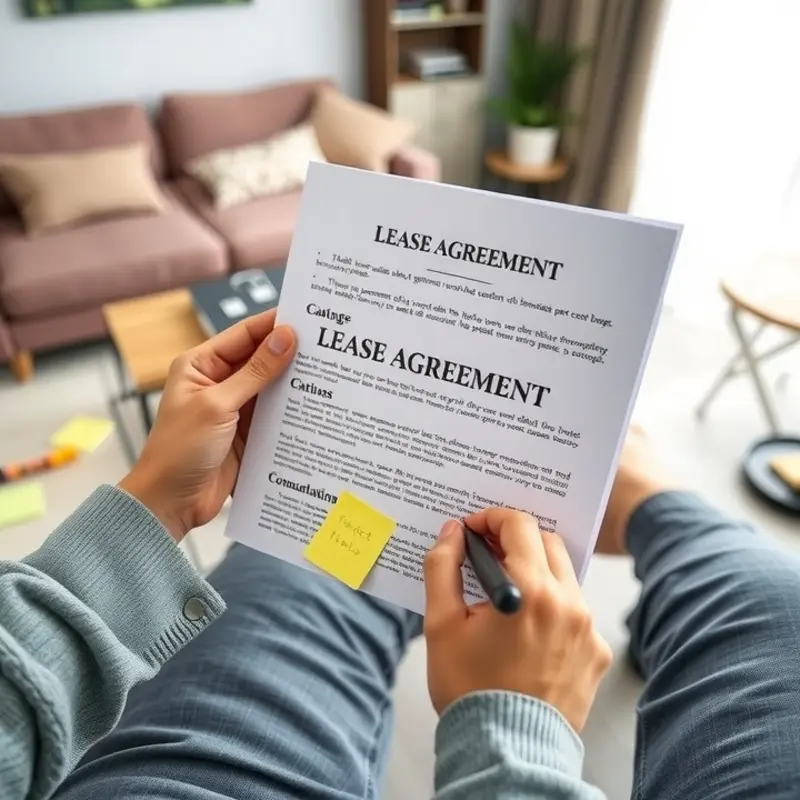Finding a rental home can be an exciting yet daunting experience, especially for young professionals, first-time renters, students, couples, and families. Establishing a budget is crucial for ensuring financial respectability and minimizing stress. It’s not just about covering rent; it involves understanding all expenses associated with living in a rental property. In this guide, you will learn practical budgeting techniques designed specifically for your family’s needs, from assessing your financial situation to crafting a detailed lease agreement. With our help, you will feel more empowered to navigate your rental experience, make well-informed decisions, and ensure a comfortable living environment without straining your finances.
Crafting Your Rental Budget

Creating a rental budget is a fundamental step for young families embarking on their rental journey. It’s essential to have a clear picture of all the potential expenses that come with renting, as these can quickly add up and strain finances if not anticipated. Here’s how to design a comprehensive rental budget by evaluating your income, prioritizing needs, and accounting for all living costs, including utilities, maintenance, and more.
First, determine your monthly income. Consider all sources of income, including salaries, bonuses, and any side gigs. It’s important to focus on your net income—the amount you take home after taxes and other deductions.
Next, prioritize your housing needs. Understanding your needs versus wants will help you make informed choices. Do you require a specific number of bedrooms? Is proximity to work or school a priority? Creating a list of non-negotiables helps you identify suitable options without overspending.
Now, consider the living costs associated with renting. Monthly rent is just the starting point. Utilities such as water, electricity, gas, and internet can significantly impact your budget. These costs can vary seasonally, so it’s wise to estimate high when planning. Review this guide for insights into what you’ll need as you transition.
Don’t overlook other potential costs like insurance and maintenance. Renters insurance provides valuable protection and peace of mind in case of unforeseen events and is often very affordable. While most major repairs are the landlord’s responsibility, you may encounter minor maintenance needs, such as changing light bulbs or filters, which can add up over time.
Factor in lifestyle considerations and personal expenses. Groceries, transportation, childcare, and entertainment can significantly vary among families. Create a realistic forecast based on your family’s habits and preferences. It’s beneficial to track these expenses for a few months to understand spending patterns and adjust as needed.
Furthermore, it’s crucial to set aside funds for unexpected expenses. Emergencies never come announced, and having a cushion can prevent financial stress. Aim to save at least three to six months’ worth of essential living costs.
Incorporating a meticulous cost breakdown helps create a rental budget that not only fits your current circumstances but also provides flexibility for future adjustments. By taking the time to account for all these factors, you’ll be in a stronger position to manage your finances comfortably and handle any surprises along the way.
Decoding Your Lease: What to Watch Out For

Signing a lease for the first time can be overwhelming. It’s a binding document detailing your rights and obligations as a tenant. Understanding this document is crucial to avoid unexpected hurdles that could impact your budget.
One key element within a lease is the rent amount and payment schedule. Confirm the total monthly cost, including utilities or additional fees, like garbage collection, which can vary by locality. Make sure you know if these fees are included or if they add to your monthly burden.
Essential Lease Terms to Know
Start with the duration of the lease. Is it a one-year lease, or is it month-to-month? A year-long lease provides stability but can be challenging if your circumstances change. Month-to-month leases offer flexibility but may expose you to sudden rent increases.
Security deposits are another critical component. Understand this refundable fee and the conditions under which deductions will be made. Familiarize yourself with state laws regarding timelines for deposit returns.
Look out for the following terms that might affect your budget:
- Late Payment Fees: These can accumulate quickly. Know your grace period and potential penalties.
- Maintenance Responsibilities: Check if you’re liable for certain repairs, as unplanned expenses can strain your budget.
Uncover Hidden Fees
Some leases might include clauses that could surprise you financially. Application fees, pet fees, and even costs for breaking a lease early are common but often overlooked. Ensure you read and understand these provisions before they affect your finances.
Tenant Rights
It is essential to understand your rights as a tenant. You have the right to a habitable living environment. Make sure maintenance requests are attended to reasonably, and know the procedures for raising concerns with housing quality or landlord disputes.
The Safe Apartment Laundry Habits guide can provide insights into maintaining your space in compliance with safety standards, safeguarding both your home and finances.
Questions to Ask Before Signing
Before putting pen to paper, ask the landlord or property manager critical clarifying questions:
- What is the policy on lease renewal?
- Are utilities included in the rent?
- Who handles emergency repairs, and how quickly are they addressed?
Engaging in this dialogue can uncover essential information, potentially saving you from unexpected issues after moving in. Understanding your lease thoroughly not only protects your budget but also ensures a more secure and comfortable rental experience.
Final words
Budgeting for a rental is more than just securing a place to live; it’s about setting up a supportive environment for your future. By thoughtfully crafting a rental budget and understanding your lease, you’ll feel more secure in your financial decisions. This preparation ensures that you’ll be ready to embrace the wonderful experiences of renting and make your space a fulfilling home. Remember, the journey of renting comes with lessons that will guide you toward your ultimate housing goals.









